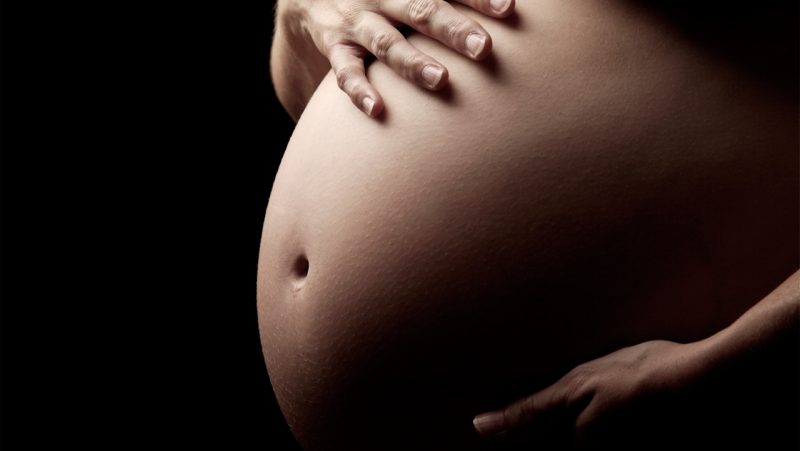Pregnancy rhinitis, also called gestational rhinitis, is the inflammation of the nasal lining that causes a blocked or stuffy nose during pregnancy.
Although often overlooked, it affects about 20 to 30 per cent of pregnant women globally.
According to research published on the MDPI, an institute that publishes open-access scientific journals, pregnancy rhinitis occurs in approximately one-fifth of pregnancies and may appear at almost any stage.
It is more frequent in the first trimester and in late pregnancy.
In Nigeria, studies suggest the condition exists but is poorly reported. A study involving 432 pregnant women in Ogbomoso found that 5.8 per cent experienced rhinitis during pregnancy.
Another study of 80 women in Calabar identified ear, nose, and throat changes among the group.
Causes, signs of pregnancy rhinitis
Although the exact cause of pregnancy rhinitis is unknown, several studies link it to increased blood volume and hormonal changes during pregnancy.
The MDPI research notes that hormones such as increased oestrogen, progesterone, and growth hormones can cause swelling of the nasal lining and congestion. Smoking or pre-existing nasal problems may also increase the risk.
Other risk factors include smoking or a history of long-term nasal congestion before pregnancy.
Ashleigh Halderman, an ear, nose, and throat specialist at UT Southwestern Medical Centre, explains that several factors may contribute, including the extra blood and fluid the body produces in pregnancy, which can swell nasal passages.
Ms Halderman adds that the placenta produces a variant of human growth hormone (HGH) that has been linked to nasal congestion in other conditions.
Another study found that women carrying female babies were more likely to be diagnosed with pregnancy rhinitis than those carrying male babies.
Typical symptoms include a blocked or runny nose, sneezing, watery eyes, and post-nasal drip (mucus at the back of the throat). While the condition is not considered dangerous, it can affect a woman’s quality of life.
A report in the American Journal of Rhinology and Allergy highlights that pregnancy rhinitis can cause poor sleep, snoring, tiredness, headaches, and difficulty concentrating due to blocked breathing. It may also worsen existing conditions such as asthma.
The same report warns that nasal obstruction can contribute to or worsen obstructive sleep apnoea (OSA), a disorder where breathing repeatedly stops and starts during sleep. In pregnancy, OSA is linked to higher risks of high blood pressure, preeclampsia, low oxygen levels, and complications for both mother and child.
How long do symptoms last?
Ms Halderman further notes that pregnancy rhinitis usually lasts six weeks or more, with symptoms often resolving within two weeks after delivery.
Women with chronic rhinitis before pregnancy may experience the same severity, worsening symptoms, or, in some cases, an improvement.
“I’ve had many women tell me they’ve felt the best, sinus-wise, when they were pregnant,” she said, though the reasons remain unclear.
Treatment of pregnancy rhinitis
The goal of treating pregnancy rhinitis is to ease symptoms and improve comfort, and doctors usually recommend starting with safe, non-drug approaches. According to UT Southwestern, the first step in managing pregnancy rhinitis is to visit a doctor to rule out infections such as COVID-19, influenza, or sinusitis.
The US National Institutes of Health (NIH) recommends seeing a gynaecologist when a stuffy or runny nose during pregnancy begins to affect daily life.
The agency further advises getting checked to rule out other causes of nasal congestion, such as allergies or infections.
After diagnosis, healthcare providers may suggest simple measures such as saline sprays or rinses, sleeping with the head elevated, and using a humidifier. The NIH also notes that avoiding irritants such as cigarette smoke, dust, or strong perfumes can reduce symptoms, while specific eye drops may help relieve itchy or watery eyes.
READ ALSO: EXPLAINER: Why Nigeria is missing from relay events at World Championships in Tokyo
When symptoms are more severe, stronger medicines may be considered. Another report indicated that stronger medicines, such as oral corticosteroids, can be used for treatment, but this is only recommended when the condition is very severe.
Oral decongestants have associations with cardiac, ear, gut, and limb abnormalities and are not recommended in the first trimester.” The report further explained that these drugs are risky in early pregnancy because of their potential link to birth defects affecting the heart, ears, stomach, or limbs of the unborn child.
Other strategies include exercise, sleep positioning, and steam inhalation. Pregnancy rhinitis is typically temporary, and symptoms usually subside within about two weeks after delivery.











